
Find Help
More Items From Ergsy search
-

What role does government regulation play in protecting pensions?
Relevance: 100%
-

What is the Pension Protection Fund?
Relevance: 67%
-

Are government pension advisory services trustworthy?
Relevance: 62%
-

Are defined contribution pensions protected if the provider goes bust?
Relevance: 59%
-

What Happens When Pensions Go Bust! | Pension System Collapse UK
Relevance: 53%
-

Where can I find a regulated financial advisor for pension advice?
Relevance: 53%
-
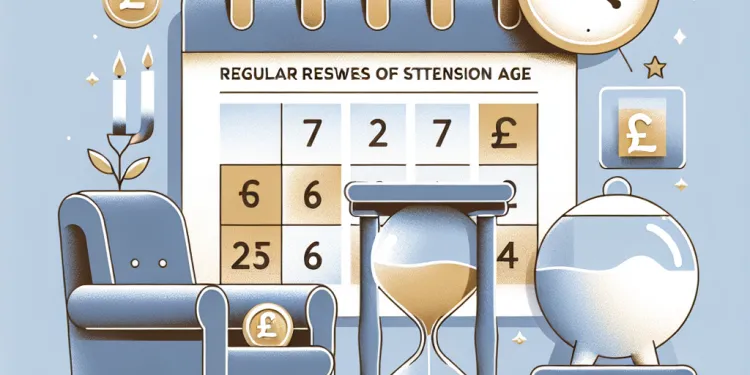
How often does the UK government review the state pension age?
Relevance: 51%
-
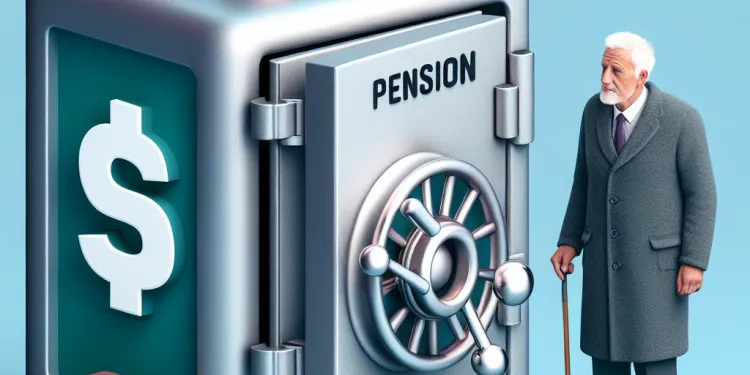
Can pensioners lose all their money if a pension provider fails?
Relevance: 47%
-

Is the Pension Wise service reliable for pension advice?
Relevance: 46%
-

What is the impact on pensioners if a pension system collapses?
Relevance: 45%
-

Where can I get reliable pensions advice?
Relevance: 43%
-

Can I get pension advice directly from pension fund providers?
Relevance: 42%
-

Will pension contribution allowances be affected in 2026?
Relevance: 41%
-

Can pension scheme members influence how their pension is managed?
Relevance: 41%
-

How does insolvency impact pension funds?
Relevance: 41%
-

Are firefighter pension benefits adjusted for inflation?
Relevance: 41%
-

Unfreezing the Truth The UK's Frozen Pensions
Relevance: 40%
-

Do all UK firefighters automatically join a pension scheme?
Relevance: 40%
-

Is the production of ketamine regulated?
Relevance: 39%
-

Why do pension funds go bust?
Relevance: 39%
-
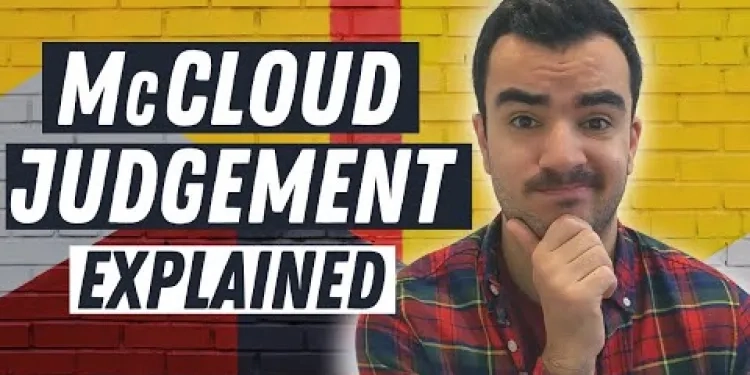
Public Sector Pension Changes | McCloud Judgement | NHS Pensions etc.
Relevance: 39%
-

What is the basic pension in the UK?
Relevance: 38%
-

Can my employer provide pension advice?
Relevance: 38%
-

Will the state pension amount change with the age increase?
Relevance: 38%
-
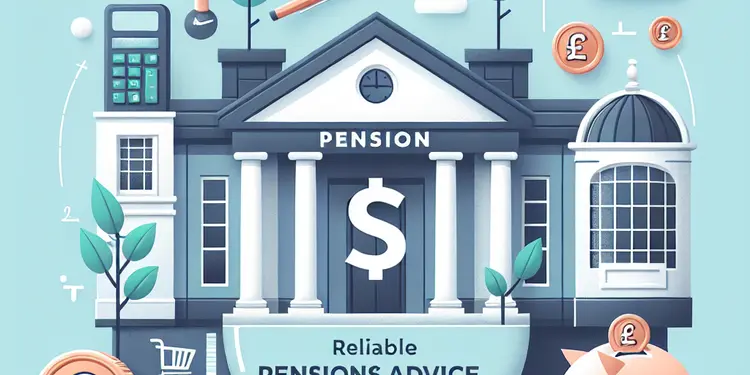
Is advice from my bank on pensions reliable?
Relevance: 38%
-
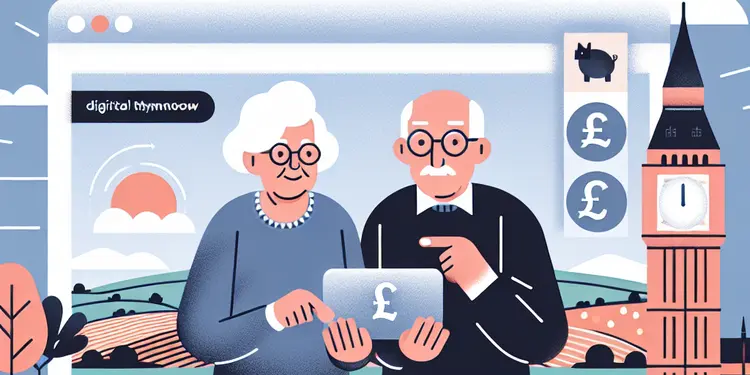
Are there free online resources for pension advice?
Relevance: 38%
-

What is the new planned state pension age after 2028?
Relevance: 38%
-

Are men and women's pension ages equalized?
Relevance: 38%
-

Are there specific regulations for ground burials in the UK?
Relevance: 38%
-

When will the state pension age increase to 67?
Relevance: 37%
-

Police Pension Explained
Relevance: 37%
-

What are the state pension age changes in 2026 in the UK?
Relevance: 37%
-

Will I qualify for the new state pension?
Relevance: 37%
-
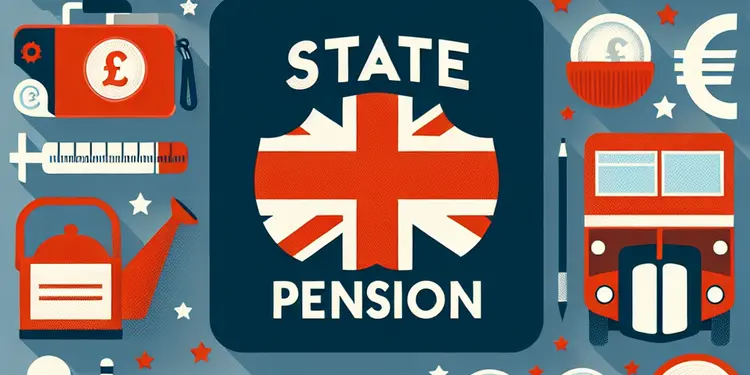
Is the basic State Pension enough to live on?
Relevance: 37%
-

What is the importance of a pension advisor's accreditation?
Relevance: 37%
-

Will the pension age changes automatically apply to me if I move abroad?
Relevance: 37%
-

What is the state pension age in the UK in 2026?
Relevance: 37%
-

What is the normal pension age for firefighters in the UK?
Relevance: 37%
-

How can government policies influence transparency in banking fees?
Relevance: 37%
-

Where can I get more information about my pension?
Relevance: 37%
Introduction to Government Regulation and Pensions
In the United Kingdom, government regulation plays a crucial role in ensuring the security and fairness of pension schemes. Pensions are a critical component of retirement planning, providing financial stability for individuals in their later years. The government's involvement helps protect these funds, ensuring they remain viable and are managed responsibly by pension providers and employers.
The Role of The Pensions Regulator
The Pensions Regulator (TPR) is the primary body responsible for overseeing workplace pensions in the UK. TPR ensures that pension schemes adhere to legal standards and are managed prudently. Its responsibilities include monitoring compliance with regulations, providing guidance to employers, and taking enforcement actions against those who fail to meet their obligations. By maintaining a strict regulatory environment, TPR helps safeguard the interests of pension scheme members.
Pension Protection Fund
Another essential aspect of government regulation in protecting pensions is the Pension Protection Fund (PPF). Established in 2004, the PPF provides compensation to members of defined benefit pension schemes when their employers become insolvent and the scheme is unable to meet its liabilities. This safety net ensures that individuals still receive a substantial portion of their promised pension benefits, preventing financial hardship caused by factors outside their control.
Regulatory Framework and Legislation
The UK government has put in place a comprehensive regulatory framework designed to protect pension schemes and their beneficiaries. Legislation such as the Pensions Act 2004 and the Pension Schemes Act 2015 lays out strict guidelines for the administration and funding of pension schemes. These laws enforce minimum funding standards, demanding that schemes hold sufficient assets to cover their liabilities. Additionally, the introduction of automatic enrolment has increased pension participation, bringing more individuals under regulatory protection.
Protecting Consumers from Mismanagement and Fraud
Government regulation also mitigates the risks of mismanagement and fraud in the pension industry. By enforcing transparency and accountability, regulators ensure that pension providers operate in the best interests of their members. Regular audits, stringent reporting requirements, and the need for schemes to produce an annual governance statement are examples of measures designed to prevent irresponsible actions that could jeopardize pension savings.
Conclusion
In conclusion, government regulation is vital for protecting pensions in the UK. Through organisations like The Pensions Regulator and the Pension Protection Fund, alongside robust legislative frameworks, the government ensures that individuals' retirement savings are managed securely and remain accessible. By safeguarding against risks such as insolvency and mismanagement, government intervention provides reassurance to millions of UK citizens relying on pensions for their future financial security.
Introduction to Government Rules and Pensions
In the UK, the government sets rules to keep pensions safe and fair. Pensions are money saved for when you stop working and are older. The government helps look after this money so it is safe and used properly by those who look after it.
What The Pensions Regulator Does
The Pensions Regulator (TPR) is a group that checks workplace pensions in the UK. TPR makes sure pensions follow the law and are run well. They watch over pension providers, help employers understand rules, and can act if rules aren’t followed. TPR works hard to keep people’s pension money safe.
Pension Protection Fund
The Pension Protection Fund (PPF) is another important way the government protects pension money. Started in 2004, the PPF helps people if their company goes out of business and can’t pay the promised pension. It makes sure people still get most of their pension money, even if things go wrong.
Rules and Laws for Pensions
The UK has strong rules to keep pension money safe. Laws like the Pensions Act 2004 and the Pension Schemes Act 2015 set clear standards for how pensions should be run. These laws make sure there is enough money to pay pensions and include rules so more people have pensions through work.
Keeping Pensions Safe from Bad Actions
The government has rules to stop bad actions with pension money. These rules make pension companies open and honest. Regular checks and reports help make sure pensions are safe. These actions stop people from doing bad things that could lose pension money.
Conclusion
To sum up, government rules are very important for keeping pensions safe in the UK. Groups like The Pensions Regulator and the Pension Protection Fund, together with strong laws, make sure pension money is safe and used properly. These protections help UK people feel sure about their pensions and their financial future.
Frequently Asked Questions
What is the primary role of government regulation in protecting pensions?
Government regulation primarily ensures that pension plans are managed prudently and that there are sufficient funds to meet future obligations to retirees.
How do government regulations ensure the security of pension funds?
Regulations set standards for funding, investment practices, and fiduciary responsibilities to ensure the security and proper management of pension funds.
What are some common regulations imposed on pension plans?
Common regulations include funding requirements, investment restrictions, disclosure mandates, and fiduciary standards for plan administrators.
How does government regulation affect private pension plans?
Regulation requires private pension plans to follow certain guidelines and maintain funding levels, ensuring they are able to meet their obligations to beneficiaries.
What is ERISA and how does it relate to pension protection?
The Employee Retirement Income Security Act (ERISA) is a federal law that sets minimum standards for pension plans in private industry to protect plan beneficiaries.
How do regulators monitor compliance with pension laws?
Regulators monitor compliance through audits, reporting requirements, and enforcement actions against those who violate pension regulations.
Why is fiduciary responsibility important in pension management?
Fiduciary responsibility requires those managing pension assets to act in the best interests of participants, ensuring assets are managed prudently and responsibly.
How do funding requirements under government regulation protect pensions?
Funding requirements mandate that employers contribute enough to their pension plans to cover future obligations, reducing the risk of underfunded plans.
What role does the Pension Benefit Guaranty Corporation (PBGC) play?
The PBGC is a federal agency that insures certain pension benefits, providing a safety net if a plan sponsor cannot meet its obligations.
How do disclosure requirements help protect pension beneficiaries?
Disclosure requirements ensure that participants receive timely information about the status and health of their pension plans, promoting transparency and accountability.
What are investment restrictions in pension regulation?
Investment restrictions limit the types and amounts of investments pension plans can make to reduce risk and ensure assets are available for future benefit payments.
How do pension regulations help prevent fraud and mismanagement?
Regulations establish safeguards and require audits to detect and prevent fraud or mismanagement in the administration of pension plans.
What happens when a pension plan is underfunded?
Regulators may require increased contributions from the sponsor, benefit adjustments, or other actions to correct underfunded status and protect benefits.
Are government pension plans regulated differently from private ones?
Yes, government pension plans are often subject to different sets of regulations, typically at the state level, which govern their operation and funding.
How do pension regulations impact the financial stability of retirement systems?
Regulations promote financial stability by enforcing prudent funding and investment practices, ensuring retirement systems can meet long-term obligations.
What is a fiduciary duty, and how does it relate to pension regulation?
A fiduciary duty is an obligation to act in the best interest of pension plan participants, a core principle enforced by regulation to protect beneficiaries.
Can pension regulations change, and how are they updated?
Yes, regulations can change in response to economic, demographic, and legislative developments. Updates are often enacted through new legislation or regulatory amendments.
How do insolvency regulations protect pensioners?
Insolvency regulations provide mechanisms for protecting benefits, such as the PBGC stepping in, when a pension plan becomes insolvent.
What are minimum funding standards, and why are they important?
Minimum funding standards set the required contributions employers must make to pension plans, critical for preventing underfunded plans and ensuring benefit security.
How do regulations address conflicts of interest in pension plan management?
Regulations prohibit certain transactions that pose conflicts of interest and require fiduciaries to act solely in participants' interests, ensuring unbiased management.
What Does the Government Do to Keep Pensions Safe?
Pensions help people when they stop working.
The government has rules to keep pensions safe.
- The rules make sure companies save money for pensions.
- The rules help stop companies from doing bad things with pension money.
It is important to keep pensions safe, so people have money when they are older.
If you find reading hard, having someone read the text out loud can help. Using audiobooks or a text-to-speech tool are also good ideas.
The government makes rules to make sure that pension plans are handled carefully. This way, there will be enough money for people when they stop working.
How do government rules keep pension funds safe?
Governments make rules to keep our pension money safe. Here is how:
- Checks by experts: Specialists look at pension funds to make sure they are safe.
- Rules to follow: There are rules that pension companies must follow to keep our money safe.
- Reports: Pension companies must tell the government how they look after our money.
These rules help protect our savings for the future.
If you want extra help understanding this, you can use pictures or diagrams. Talking with someone you trust can also help.
Rules help keep pension money safe. They say how money should be spent, invested, and managed. These rules make sure that the people taking care of the pension money do it the right way.
What rules do pension plans have to follow?
Pension plans have rules to keep them fair and safe. Here are some rules they must follow:
- Save Money: Pension plans must save enough money to pay people when they retire.
- Follow Age Rules: There are rules about how old you must be to get your pension.
- Share Information: Plans must tell you how much money you will get when you retire.
- Be Fair: Everyone in the plan must be treated the same.
Tools can help you understand your pension plans better, like:
- Ask for Help: You can ask someone to explain the rules.
- Use Simple Guides: Look for easy guides or videos online.
- Talk to a Counselor: A pension expert can answer your questions.
Common rules include how money must be managed, where it can be invested, what information must be shared, and duties of people who manage the plans.
If you need help understanding these rules, you could use tools like audiobooks or videos. They can make things easier to learn.
How do government rules change private pension plans?
The government makes rules. These rules can change how private pension plans work. Private pension plans are money saved for when you stop working.
If you have trouble understanding, you can:
- Ask someone to read it with you.
- Use a dictionary to look up tough words.
- Talk with a helper or teacher to explain things.
There are rules that private pension plans must follow. These rules help make sure they have enough money to pay the people they owe.
If reading is hard, try using text-to-speech to hear the words read aloud. You could also ask someone to read the words with you. This might help you understand better.
What is ERISA and how does it help keep your pension safe?
ERISA is a law. It helps protect your pension money. A pension is money you get when you stop working. ERISA makes sure your pension is safe and used the right way.
If you need help reading, you can ask a friend or family member to explain. You can also use a computer or phone app that reads text out loud.
The Employee Retirement Income Security Act (ERISA) is a law made by the government. It helps make sure that companies take care of their workers' money for retirement. This law makes rules to keep workers’ pension plans safe.
How do regulators check if people follow pension laws?
Regulators are people who make sure that everyone is following the rules about pensions.
Here is how they do it:
- They look at reports and papers from companies.
- They ask questions to make sure everything is right.
- They check that companies are doing the right thing.
If you need help to understand, you can:
- Ask someone you trust to explain it to you.
- Use a dictionary to look up hard words.
- Take breaks to think about what you read.
Regulators check if rules are followed. They do this by looking at records, asking for reports, and taking action if someone breaks pension rules.
Why is it important to take care of money in pensions?
Fiduciary responsibility means looking after other people's money carefully. It's important for pensions because:
- Pensions are money saved for the future.
- People need this money when they stop working.
- Careful management helps the money grow and keeps it safe.
To understand better, you can:
- Ask someone to explain it to you.
- Watch videos about how pensions work.
- Use apps that teach money skills.
People who take care of pension money must do what is best for the people who own that money. They need to be careful and smart with the money.
How do rules about money help keep pensions safe?
Employers must put enough money into pension plans to make sure there is enough for people who will need it later. This helps stop the risk of not having enough money in the plan.
What Does the Pension Benefit Guaranty Corporation (PBGC) Do?
The Pension Benefit Guaranty Corporation, or PBGC, helps protect people's pensions.
If a company closes and there's no money for pensions, PBGC makes sure people still get some money.
PBGC is like a safety net for pensions.
If you find reading hard, you can use text-to-speech tools to listen instead.
Ask someone you trust to explain it to you in a different way if you need more help.
The PBGC is a part of the government. It helps protect some pension money you might get when you retire. If the company that promised you this money can't pay, the PBGC helps make sure you still get some of it.
Try using a friendly voice reader or a highlighter pen when reading. These tools can make it easier to understand and remember what you read.
How do disclosure rules help keep pension savers safe?
Rules make sure people get important information about their pension plans on time. This helps them understand how their plans are doing, making everything clear and honest.
What rules limit where pension money can go?
Investment rules say what and how much pension plans can invest in. This helps keep the money safe and makes sure there is enough for people later.
How do rules for pensions stop cheating and bad management?
Rules help keep pension plans safe. They check to make sure no one is cheating or making mistakes with the money. This checking is called an audit. It helps to keep everything fair and right.
What if a pension plan doesn't have enough money?
Sometimes the people in charge ask for more money from the company that supports the plan. They might also change the benefits or do other things to fix the problem so they can keep helping people.
Are government and private pension plans managed in different ways?
A pension plan is a way to save money for when you are older and stop working. There are two main types: government and private.
Government pension plans are run by the government. Private pension plans are run by businesses or other groups.
These plans may have different rules. This means they might be managed in different ways.
If you find reading hard, try using tools like audiobooks or ask someone to read with you. Pictures and videos can also help explain these ideas.
Yes, government pension plans have rules that they have to follow. These rules can be different in each state, and they help decide how the plans work and get money.
How do pension rules affect money safety for retirements?
Pension rules are like guidelines for retirement money. They help make sure there's enough money for people when they retire. These rules can help keep the whole retirement system safe and steady. They stop problems and make sure everyone gets their fair share.
Tools that might help you understand:
- Use pictures or diagrams to show how pensions work.
- Try using simple charts to explain where the money comes from and where it goes.
Rules help keep money safe. They make sure that smart choices are made about saving and spending. This way, money will be there when people retire and need it in the future.
What is a fiduciary duty, and how does it relate to pension regulation?
A fiduciary duty is a big promise to be honest and fair. It means someone must take care of money or things for someone else. They must put the other person's needs first.
A fiduciary duty is important for pensions. Pensions are money saved for when people stop working. The person looking after pension money must keep it safe and make good choices.
If you find it hard to read, you can ask someone to help you. You can also listen to the text using a computer or phone.
A fiduciary duty means you must help people in the best way possible. It is a rule that makes sure your job is to look after the people who have a pension plan. This rule keeps the people who get the benefits safe.
Can pension rules change, and how do they get updated?
Yes, rules can change when things like money, people, or laws change. New rules or changes to rules are made to keep up with these changes.
How do rules help keep pensioners' money safe?
Pensioners get money when they stop working. Sometimes, companies can run out of money. This is called insolvency.
There are special rules to help keep pensioners' money safe if this happens. These rules make sure pensioners still get their money.
Here are some ways pensioners can be protected:
- First, some companies save extra money just in case.
- Second, there are special groups that help protect pensioners' money.
- Third, if a company cannot pay, these groups make sure pensioners still get some money.
If you want more help, you can:
- Ask someone you trust to explain.
- Use tools that read text out loud.
- Look for videos that explain this in simple ways.
When a pension plan can't pay anymore, there are rules to help. The PBGC can step in to protect your benefits.
What are minimum funding standards, and why are they important?
Minimum funding standards are rules. These rules say how much money a pension plan must have. This money is used to pay people when they retire.
These rules are important. They make sure there is enough money for everyone. When people retire, they need this money to live.
Using tools can help you understand better. You can ask someone to read with you. You can also use a dictionary to learn new words.
Minimum funding rules tell employers how much they need to pay into pension plans. This helps make sure there is enough money for people’s benefits and stops plans from having too little money.
How do rules stop problems with interests in looking after pension plans?
Rules help make sure people manage pension plans fairly. Here are some easy steps:
- Follow Rules: Managers must follow special rules to keep things fair. This means they cannot make choices that help them more than others.
- Tell the Truth: Managers have to say when there might be a problem with interests. This helps everyone know what is happening.
- Be Fair: There are checks to make sure managers do the right thing for everyone with a pension plan.
If you need help understanding, you can ask someone to explain, use pictures to help, or take notes.
Rules say that some actions are not allowed if they cause problems. The people in charge must make choices that are best for everyone. They must not pick sides.
Useful Links
This website offers general information and is not a substitute for professional advice.
Always seek guidance from qualified professionals.
If you have any medical concerns or need urgent help, contact a healthcare professional or emergency services immediately.
Some of this content was generated with AI assistance. We’ve done our best to keep it accurate, helpful, and human-friendly.
- Ergsy carfully checks the information in the videos we provide here.
- Videos shown by Youtube after a video has completed, have NOT been reviewed by ERGSY.
- To view, click the arrow in centre of video.
- Most of the videos you find here will have subtitles and/or closed captions available.
- You may need to turn these on, and choose your preferred language.
- Go to the video you'd like to watch.
- If closed captions (CC) are available, settings will be visible on the bottom right of the video player.
- To turn on Captions, click settings .
- To turn off Captions, click settings again.
More Items From Ergsy search
-

What role does government regulation play in protecting pensions?
Relevance: 100%
-

What is the Pension Protection Fund?
Relevance: 67%
-

Are government pension advisory services trustworthy?
Relevance: 62%
-

Are defined contribution pensions protected if the provider goes bust?
Relevance: 59%
-

What Happens When Pensions Go Bust! | Pension System Collapse UK
Relevance: 53%
-

Where can I find a regulated financial advisor for pension advice?
Relevance: 53%
-

How often does the UK government review the state pension age?
Relevance: 51%
-

Can pensioners lose all their money if a pension provider fails?
Relevance: 47%
-

Is the Pension Wise service reliable for pension advice?
Relevance: 46%
-

What is the impact on pensioners if a pension system collapses?
Relevance: 45%
-

Where can I get reliable pensions advice?
Relevance: 43%
-

Can I get pension advice directly from pension fund providers?
Relevance: 42%
-

Will pension contribution allowances be affected in 2026?
Relevance: 41%
-

Can pension scheme members influence how their pension is managed?
Relevance: 41%
-

How does insolvency impact pension funds?
Relevance: 41%
-

Are firefighter pension benefits adjusted for inflation?
Relevance: 41%
-

Unfreezing the Truth The UK's Frozen Pensions
Relevance: 40%
-

Do all UK firefighters automatically join a pension scheme?
Relevance: 40%
-

Is the production of ketamine regulated?
Relevance: 39%
-

Why do pension funds go bust?
Relevance: 39%
-

Public Sector Pension Changes | McCloud Judgement | NHS Pensions etc.
Relevance: 39%
-

What is the basic pension in the UK?
Relevance: 38%
-

Can my employer provide pension advice?
Relevance: 38%
-

Will the state pension amount change with the age increase?
Relevance: 38%
-

Is advice from my bank on pensions reliable?
Relevance: 38%
-

Are there free online resources for pension advice?
Relevance: 38%
-

What is the new planned state pension age after 2028?
Relevance: 38%
-

Are men and women's pension ages equalized?
Relevance: 38%
-

Are there specific regulations for ground burials in the UK?
Relevance: 38%
-

When will the state pension age increase to 67?
Relevance: 37%
-

Police Pension Explained
Relevance: 37%
-

What are the state pension age changes in 2026 in the UK?
Relevance: 37%
-

Will I qualify for the new state pension?
Relevance: 37%
-

Is the basic State Pension enough to live on?
Relevance: 37%
-

What is the importance of a pension advisor's accreditation?
Relevance: 37%
-

Will the pension age changes automatically apply to me if I move abroad?
Relevance: 37%
-

What is the state pension age in the UK in 2026?
Relevance: 37%
-

What is the normal pension age for firefighters in the UK?
Relevance: 37%
-

How can government policies influence transparency in banking fees?
Relevance: 37%
-

Where can I get more information about my pension?
Relevance: 37%


